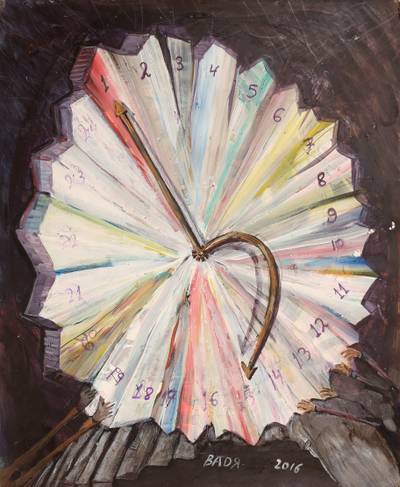

Essays


I’ve been reporting from Manipur since June 2023. From the very beginning, I could understand that though women were contributing as much as men in facing the brunt of the war, their roles never received enough acknowledgment nor were their views taken into account while making important decisions. As an outsider, I could see that women leaders had a much more pragmatic method and manner of dealing with most situations, yet they found no place on the leadership table. This, I was made to understand, stems from a society that is founded on a patriarchal structure, yet a visible reluctance of present-day male-dominated organizations to relinquish space to women during a crucial time as this continues.
READWhat it means to survive a war, with dignity
Women leaders of the Kuki-Zo community reflect on the hardships of a state supported war, and how they are rebuilding lives while negotiating denial of agency and leadership.
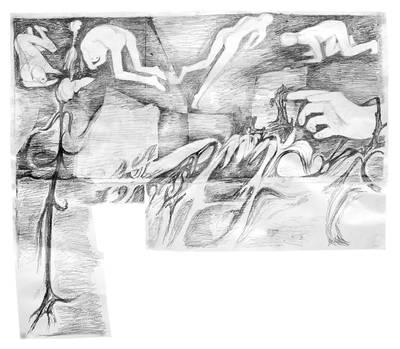

Is it problematic to mix friendships and professional connections, emphasising the benefits of helping friends since they will eventually feel obliged to help in return? How did such a neoliberal manipulative trick that openly instrumentalizes intimacy become acceptable? Is “friendly, warm hearted” corruption and favouritism legitimised? Am I abusing my position of power by preferring to work with friends? How does the professional environment change if a friendship ends abruptly and unpleasantly?
READAgainst Friendship: On the Dark Side of Professional Intimacies
Is it problematic to mix friendships and professional connections, emphasising the benefits of helping friends since they will eventually feel obliged to help in return? How did such a neoliberal manipulative trick that openly instrumentalizes intimacy become acceptable? Is “friendly, warm hearted” corruption and favouritism legitimised? Am I abusing my position of power by preferring to work with friends? How does the professional environment change if a friendship ends abruptly and unpleasantly?
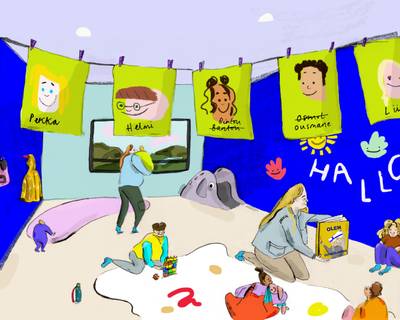

Educational institutions, just like all other institutions, can be considered microcosms of society, where prevailing attitudes and values manifest. Consequently, as racism permeates Finnish society, it also seeps into Finnish daycares.
READMicroaggressions & Everyday Racism in Finland’s Daycare System
Finland is often celebrated for its world-renowned daycare system and commitment to social equality. However, beneath the surface, many non-white families face a disquieting reality: a barrage of microaggressions and everyday racism that challenges the nation’s ideals of equity.
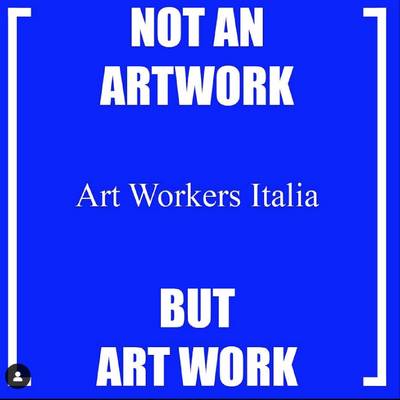

This gives a more exhaustive picture of the Italian context; indeed, if, on the one hand, there is a total lack of rules and government measures to protect cultural work, on the other, many art workers themselves do not have the critical thinking attitude to analyze their own conditions and to claim their rights. The rise of neoliberal logic does not help this lack of political awareness, inasmuch as it fosters competition rather than solidarity and makes people more isolated and vulnerable.
READNo Country for Art Workers
On political imagination and activism as care, according to AWI – Art Workers Italia. How to hack the precariat-based neoliberal system and its ideology of individualisation by embracing an intersectional approach to civil rights and precarious lives.


While azerbaijan was bombing Armenians with israeli and turkish UAVs and paying bonuses to turkish-backed Syrian mercenaries for beheading Armenians, the “international community,” whatever that’s supposed to mean at this point, expressed lousy words of “concern,” and displayed a nauseous stance of both-sideism, devoid of any tangible action. The existence of this unrecognised republic and its indigenous population wasn’t legitimate enough for world powers to lift a finger.
READViolent Septembers: An Armenian Perspective Amid the Ongoing Occupation
In the shadow of a devastating ethnic cleansing campaign by azerbaijan1, this essay paints a narrative of Armenians grappling with cultural erasure and ongoing threats.
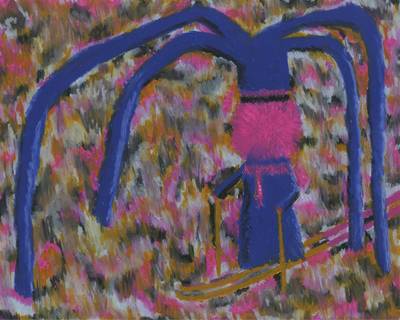

Cultural appropriation is not a new phenomenon in the Sámi context. Sámi handicrafts, duodji, have been and are still the subject of cultural appropriation. One of the central issues of cultural appropriation is that it gives the power to determine and decide on cultural objects to an actor outside the community, which weakens the self-determination of the community to manage the design themselves.
READColonial Continuity in Finland: Cultural Appropriation of Sámi Design
On the exploitation of Sámi design in Finland and how it reflects colonial continuity and power relations.
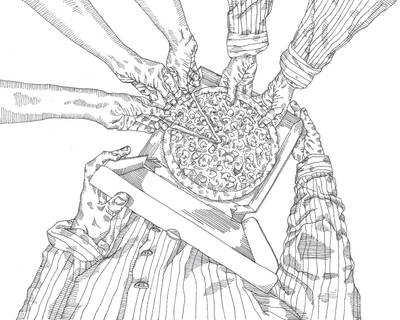

In the dimension of equity-realism, it is necessary to break the trend leading towards a further entrenching of elitism or exclusivity. In a time of profound recession and social inequality, it seems economically and socially urgent that organisations and institutes, those that use their association with the state and those who choose a path less oriented towards national promotion, learn from the actual experimentation on financial models and choose to distribute and support the diverse economic ecologies of grassroots art organisations and independent artists.
READSelling the Nordic Miracle
The Board of Directors of Frame Contemporary Art Finland1, has made an apparently uneventful change to their guidelines: “As a general rule, the grant will be paid to foreign beneficiaries only on presentation of a report on the use of the grant in accordance with the grant guidelines after the implementation of the supported project.” How does this decision align with the current trend of financial cuts underway in the arts sector in Finland, and what does it say about the ever-rising classism, social discrimination, racism, and the exclusion of non-Finnish workers?
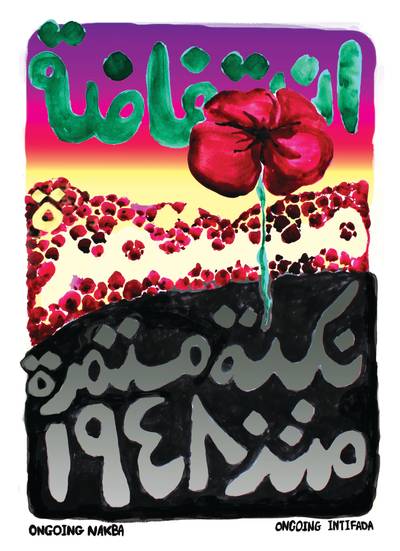

I am terrified, devastated, and drained. Every massacre makes me believe that this world does not deserve our dreams. Israel kills us in full view of the world, yet no one is doing anything to stop this genocide. The West’s presidents supported Israel and funded them to kill us. This war was not going to continue without the West and Arab leader’s consent.
READWhere Should We Go? No Place Is Safe in Gaza
Noura Selmi, a writer and translator from Gaza, has written us an account of her experience living in the south of Gaza amid Israel’s unfolding genocide of Palestinians.
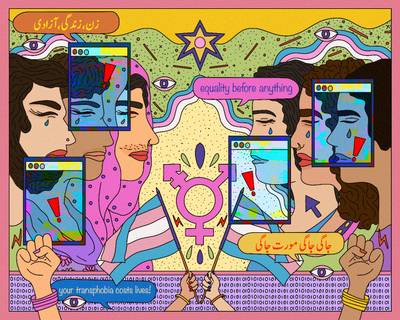

What do a fashion designer, a youth empowerment YouTuber, and a right-wing politician have in common? In Pakistan, the answer is hatred of transgender people, and their battleground of choice is the internet. Historically, the South Asia region has been home to a visible, though marginalized, transgender/khawajasira community, and Pakistan has been one of the leading countries with the most progressive legislation on transgender rights. However, 2021 saw a surge in religious right-wing discourse against transgender rights in the country.
READDigital Hate and the Othering of Pakistan’s Transgender Community
The internet and religion have combined to create a potent cocktail of extreme transphobia in Pakistan in recent years, resulting in creative censorship, the upending of civic protections, and an uptick in violence. And yet the beleaguered khawajasiras of Pakistan fight on.


Cineholic, in other words, is a film about cinema in a context in which the role of the medium has been to mediate between the Iraqi population and an almost constant state of conflict—first during the Iran-Iraq war, then the First Gulf War, then the Second, and finally the past twenty years of simmering civil unrest in the wake of the regime’s forced dismantlement by the US.
READCinema and the Political Imaginary in Kirkuk
A close reading of Cineholic, a short film that interrogates the role of the medium in Kirkuk, which is characterized by conflict —first during the Iran-Iraq war, then the First Gulf War, then the Second, and finally the past twenty years of simmering civil unrest in the wake of the regime’s forced dismantlement by the US.


European modes of living and cultures have become globalised and naturalised, so much so that critical conversations around European traditions today focus more on questions of racial diversity in, say, orchestras, ensembles, and European music and dance schools rather than why and how European cultural productions have become such a global commodity and signifier for class and and “civilisational” ascend to begin with.
READThe Innocence of (European) Instruments
European modes of living and cultures have become globalised and naturalised, so much so that critical conversations around European traditions today focus more on questions of racial diversity in, say, orchestras, ensembles, and European music and dance schools rather than why and how European cultural productions have become such a global commodity and signifier for class and and “civilisational” ascend to begin with.
